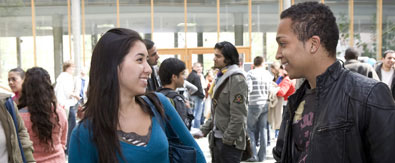The legacy of Karl Dedecius
Karl Dedecius (1921-2016) - "My memory/ you translate/ into your own memory/ my silence/ into your silence" (T. Różewicz "To the translator K.D.")
Inventory of the first part of the legacy of Karl Dedecius
Inventory of the second part of the legacy of Karl Dedecius
Karl Dedecius was born in the multicultural city of Łódź to a German family. Here he attended a Polish humanist secondary school. During World War II, he was conscripted into the Wehrmacht and sent to the Eastern Front. From 1943 to 1949 he was in Soviet captivity. There he learned Russian and produced the first translations of the classics of Russian poetry. After leaving the Soviet Union, he worked occasionally in the former GDR doing various jobs, including as a translator at the Weimar Institute for Theatre Arts. In 1952 he emigrated to West Germany, where he worked for the Allianz insurance company in Frankfurt am Main. However, his literary interests soon became apparent and, in parallel with his professional work, he began translating into German and publishing the works of Polish and Russian authors. He published his first volumes of translations of Polish poetry, Lesson of Silence and Burning Graves, in 1959.
The bibliography of his published volumes of translations, anthologies, collections of essays, monographs of poets includes over 120 items, among others 50 volumes of the Biblioteka Polska (Suhrkamp), or the monumental Panorama of Polish literature of the 20th century (Ammann, 7 volumes). He translated works by Przyboś, Miłosz, Herbert, Szymborska, Lec, etc. Dedecius was also interested in translations from Slavonic languages published in the GDR, thus breaking the borders before they were even opened. For him, translating was both a passion and a creative effort. Apart from that, he combined many other functions related to the promotion of Polish literature and culture - he delivered guest lectures on the history of Polish literature and poetics at universities in Heidelberg and Mainz, among others, as well as at various literary centres, initiated Polish-German forums to strengthen bilateral contacts and published articles on Polish-German relations. In 1979, on his initiative among others, the German Institute of Polish Culture in Darmstadt was established, which he managed until 1997.
Dedecius received numerous awards for his translations, literary and editorial work. In 1965 he received the International Translation Prize of the Polish PEN-Club, in 1990 he was awarded the prestigious Peace Prize of the German Booksellers and in 2010 the German State Prize. He was a member of the German Academy of Language and Literature, Bavarian Academy of Fine Arts, PEN-Club, honorary doctorate of universities in Cologne, Toruń, Kraków, Lublin, Wrocław and Frankfurt (Oder).
The first part of the legacy was donated by the donor in 2001 - it also became the nucleus of the Karl Dedecius Archive. In the following years, several further additions were made, and the final part of the legacy was received by the Archive in 2016 after the death of Karl Dedecius. The entire collection comprises approximately 300 linear metres of documents. These include correspondence with Polish and German (Böll, Canetti, Celan, Enzensberger, Grass, Herbert, Iwaszkiewicz, Miłosz, Mrożek, Przyboś, Szymborska) writers, prominent public figures (Bartoszewski, Dönhoff, Süssmuth, Schmidt, Weizsäcker), publishing houses, universities, and numerous cultural institutions. There are also manuscripts of translated works, notes and various versions of translations, personal documents, texts of lectures, speeches, catalogues, posters, photographs, autographed and dedicated books, audio and video cassettes, as well as awards, medals and diplomas. The archive also holds various artefacts donated to the translator - prints, sculptures, exlibrises, paintings, scores and bibliophile editions.
The legacy of Karl Dedecius is owned by the Karl Dedecius Foundation, established in 2013. It carries out extensive cultural and scholarly activities in the spirit of its founder and manages the rights to his works.
The materials from the Karl Dedecius legacy are made available by the Karl Dedecius Archive. All enquiries regarding the publication of translations and documents from the legacy should be sent to Karl Dedecius Stiftung.
Interesting pages



